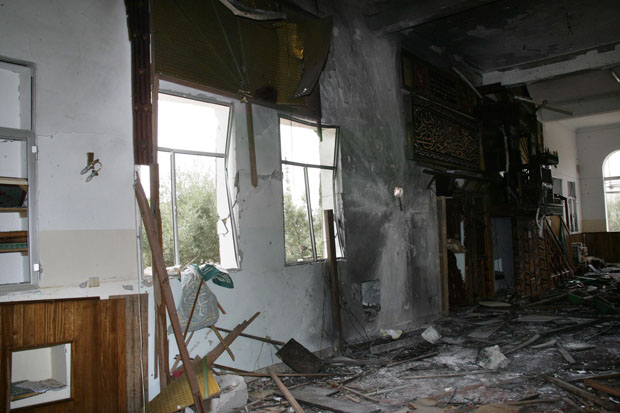Yemenis celebrate departure of President Saleh
The protesters rejoice as Yemen’s injured President flies to Saudi Arabia for medical treatment – have they won? Or is he coming back?
Thousands of anti-Government protestors are celebrating in the Yemeni capital Sanaa after the President left the country for medical treatment in Saudi Arabia.
Officials said President Saleh was having surgery after he was injured in an attack on his compound on Friday. He is said to have woken after a successful operation to remove shrapnel sustained in the rocket attack.
Government sources claim he’ll be back in Yemen within days but fresh fighting between tribal gunmen and government forces has broken out and there’s a fierce struggle for political power.
Yemen unrest poses ‘serious threat’ to UK
Earlier, Mr Hague said that the Middle East country could risk falling into pieces following the recent turmoil that has seen the medical evacuation of its president, Ali Abdullah Saleh.
Saleh was seriously wounded in an explosion in a mosque where he was praying with families and officials on Friday. At least seven people were killed and dozens injured.
A Saudi Arabian official confirmed that Saleh had left Yemen, saying:
“He’s coming for medical treatment. We are the closest country and we have the capabilities”.
Yemen’s ambassador to Britain, Abdulla Ali al-Radhi, said the attack was “devastating” and that it was “a clear assassination attempt against the president.”

The image above shows the damage done to the mosque during the rocket attack that injured President Saleh.
President Saleh issued an audio speech after the attack blaming the blast on an “outlaw gang”.
He said:
“I salute our armed forces and the security forces for standing up firmly to confront this challenge by an outlaw gang that has nothing to do with the so-called youth revolution,” Saleh said.
While Saleh is out of the country it is not clear, who is running the country. Yemen’s prime minister, two deputy prime ministers and the speakers of both parliamentary chambers are also being treated in Riyadh for injuries.
The attack came following weeks of civil protest against Saleh’s rule, that has since split into a bitter war between Yemen’s government and a group of its strongest tribes called the Hashed tribal federation.
Forces loyal to Saleh retaliated over the assault by shelling homes of leaders of the Hashed tribal federation. A spokesman for the federation denied responsibility for the mosque attack and said 10 of their tribesmen had been killed in the subsequent shelling.
Yemen has also been a historic breeding ground for al-Qaeda which particularly concerns western powers should the country descend into lawlessness.
William Hague said he was “very worried” about the escalating situation in the country and said that if Yemen was to become unstable that “it could become a much more serious threat to our own security”
He also warned that the few hundred Britons in Yemen should leave immediately:
“They should not assume that in these circumstances, we can safely conduct or would try to conduct an evacuation.
Saudi Arabia has recently brokered a truce between government forces and the Hashed tribal federation which currently appears to be holding. A previous truce lasted only for a single day until fresh fighting broke out on the streets of Sanaa – which saw the most intense fighting there in the entire four month old uprising.
Nearly 200 people have been killed in Sanaa in the past two weeks as fighters battle with machineguns, mortars and rocket propelled grenades. Sanaa’s airport has been forced to ground flights twice.
Sanaa roads were clogged as civilians fled the violence. “Bullets are everywhere, explosions terrified us. There’s no chance to stay any more,” said resident Ali Ahmed.
Over 400 people have been killed since the uprising against Saleh began in January, inspired by the arab revolts in Tunisia and Egypt.
-
Latest news
-
As India goes to the polls in the world’s largest election – what do British-Indians think?6m

-
Tees Valley: Meet the candidates in one of the biggest contests coming up in May’s local elections4m

-
Keir Starmer says public sector reform will be a struggle7m

-
Nicola Sturgeon’s husband Peter Murrell charged with embezzlement of funds from SNP1m

-
Ukraine might finally get $60billion in American weapons and assistance to defend against Russia3m

-





